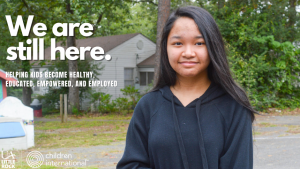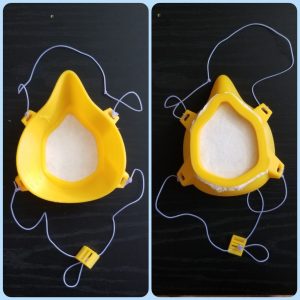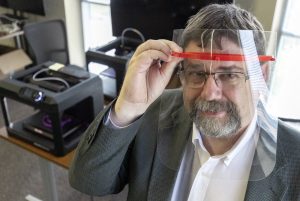The impact of UA Little Rock researchers and community leaders in 2020
The world in 2020 is fatigued. At the beginning of the year, people from every corner in the world rapidly changed the way they functioned in the matter of weeks. From encountering a new virus that increased at breakneck speed, to witnessing continued injustice in communities, the events of 2020 have reshaped our lives and forced us to question how our society functions and truly helps those in need.
But this fatigue has not stopped researchers and community service leaders from responding to the call to save lives, change systems that promote inequality and injustice, and lessen the burden for those on the front lines. This vocation is especially true for UA Little Rock researchers and community service leaders who have committed to this service since the beginning. Our institution has a rich history of being on the front lines to help our communities and save lives. We still have a long way to go, but we’re committed to the hard work it takes to bring about change, growth, and healing.
“Growth economies and healthy communities are undergirded by an active research and development sector,” UA Little Rock Chancellor Christina Drale said. “UA Little Rock is committed to helping Arkansas thrive through its research mission and its ongoing engagement with research partners.”
Creating a Better Society
For decades, UA Little Rock has served central Arkansas communities by providing educational opportunities to students who may not otherwise have the resources to succeed in sciences, arts, and the humanities. These programs, such as Children International, MidSOUTH, The Jodie Mahony Center for Gifted Education, and TRiO, are essential to eradicating inequality and providing the same level of education to all walks of life.

UA Little Rock Children International
It is also important to recognize the errors of our past in order to create a more just society for all and prevent atrocities from happening again. Dr. Brian Mitchell of the history department and his students have extensively researched racial injustices in Arkansas and honored those who have suffered from these crimes. Archivists and students at the UA Little Rock Center for Arkansas History and Culture have created a detailed digital exhibit to show the disastrous effects of Urban Renewal policies on African American communities in Little Rock. As we confront our city’s history of racism and inequality, this exhibit shows how we need to undo these policies to create a more connected city.
The Little Rock Congregations Study, led by Dr. Rebecca Glazier, Gerald Driskill, and Kirk Leach, works with religious leaders in Little Rock to show how faith-based community engagement affects our city. Recently, they discovered that improving race relations is a critical concern to faith leaders in the city. In a recent survey, all faith leaders who paricitpated responded “important” or “very important” to this topic. By understanding this imperative issue, faith and social justice leaders can work together to begin healing our city.
“Places of worship and people of faith have always played a powerful role in mobilizing people to fight for justice and in healing past wounds,” Glazier said. “The early results from our 2020 study reveal that there is still a lot of hope in our city. Communities of faith are key to making that happen.”
Helping Arkansas Businesses
Another important aspect of creating a better society is to support small businesses in our community. As COVID-19 impacts small businesses in the state, the Arkansas Small Business Technology Development Center (ASBTDC) has been on the economic front lines to provide assistance. ASBTDC provides extensive resources and funds to mitigate the impact of COVID-19 on small businesses.
Researchers on the Front Lines
Faculty and student researchers at UA Little Rock have also responded to the call in 2020. When hospitals in central Arkansas were in desperate need of personal protective equipment to treat COVID-19 patients, doctoral student Trigun Maroo briefly turned his attention away from his research project to create face masks for hospital workers using a 3D printer. This selfless act is just one example of the many extraordinary students on campus who use their skills to respond to the call. Additionally, the Donaghey College of Science, Technology, Engineering, and Mathematics worked with the Little Rock Chamber of Commerce to create face shields for a local hospital in Little Rock using a 3D printer.
Eradicating Misinformation
As our society moves faster through social media, finding the right information and disregarding misinformation can be more difficult than ever before. Dr. Nitin Agarwal and his students worked with Arkansas Attorney General Leslie Rutledge and the Arkansas Research Alliance to create a website that specifically targeted misinformation regarding COVID-19. As the social media landscape grows and moves, it will become even more important to identify harmful misinformation that can harm a society.
Responding to the Future
As we move forward to 2021 and beyond, we will continue to see the impact of researchers and community service leaders in our lives. UA Little Rock students, faculty, and staff will remain dedicated to the hard work that is necessary to improve our communities, make scientific discoveries, and provide the best resources and opportunities to student researchers. That was what research and community service is all about. These core aspects haven’t changed in our decades of service, and they will continue to serve as our world changes.

